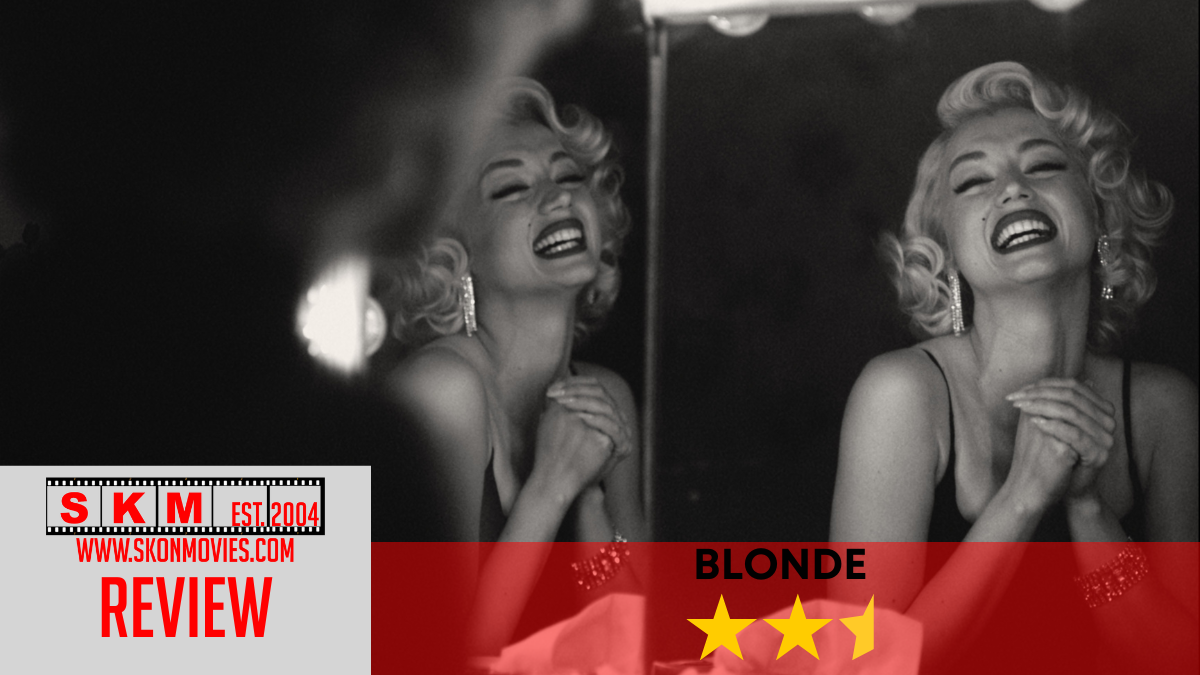Content Advisory: Rape and Sexual Assault, Abuse, Child abuse/pedophilia, Self-injurious behavior
A fictionalized version of the life of Marilyn Monroe is told in Blonde. As a child, Norma Jeane Mortenson was traumatized by the mental breakdown of her mother, Gladys Baker (Julianne Nicholson), leaving Norma to pine for the father she never knew. A decade later, Norma (Ana de Armas) is on the rise as blonde bombshell Marilyn Monroe, but she is disgusted by the sex symbol she plays on the screen. Throughout failed marriages to both athlete Joe DiMaggio (Bobby Cannavale) and playwright Arthur Miller (Adrien Brody), the only true thing that Norma Jeane wants is a normal family life and a relationship with her father.
Blonde is a film written and directed by Andrew Dominik (The Assassination of Jesse James by the Coward Robert Ford, Killing Them Softly), based on the controversial and highly fictionalized 2000 novel of the same name by Joyce Carol Oates. The film depicts Norma Jeane as a broken woman who not only wants to separate herself from her screen persona of Marilyn Monroe but is desperate to get to know her father, from whom she starts to receive letters. The fragmented personality of Norma Jeane and Marilyn Monroe is visually represented by the film’s repeated switches between black and white and colour and changing aspect ratios.
Getting the positives out of the way, Blonde features a standout performance by Ana de Armas as Norma Jeane/Marilyn Monroe. While her Cuban accent is still noticeable, de Armas completely disappears into the role and is undoubtedly the highlight of Blonde. The film also has a very haunting and melancholy score by Nick Cave and Warren Ellis.
No matter how good Ana de Armas is in the lead role, it can not be ignored that Blonde is a film that is quite exploitative of the tragedy of Marilyn Monroe. While part of the fault can be relayed towards Joyce Carol Oates’ source novel, Andrew Dominik is also responsible for creating a film adaptation of the book that received an NC-17 rating. The scenes mostly likely responsible for the rating include a threesome with Charles “Cass” Chaplin Jr. (Xavier Samuel) and Edward G. Robinson Jr. (Evan Williams) and a scene of Marilyn orally pleasuring JFK, both of which could have easily been removed from the film, along with most of the film’s sexuality and nudity, including a rape scene that by accounts did not happen in real life.
While an argument for artistic merit can be used on behalf of both Andrew Dominik and Joyce Carol Oates, the story of Marilyn Monroe is tragic enough that we don’t need a nearly three-hour film that exploits this fact. While Ana de Armas gives it her all in the lead performance, Blonde is not a film I can recommend.

